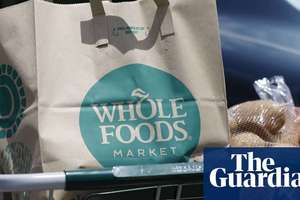Publishers claim that new technologies, like digital textbooks and Netflix-style subscription services, make textbooks more affordable for all.
But the price of textbooks has similarly skyrocketed over the past decade: Textbook costs increased 88 percent between 2006 and 2016, according to the BLS report.
Four major publishers — Pearson, Cengage, Wiley, and McGraw-Hill — control more than 80 percent of the market, according to a 2016 PIRG report.
Digital textbooks, especially those that come with access codes, have also contributed to rising costs.
Textbook publishers say they’re well aware of students’ difficulty affording books and are making strides toward affordability.
Vitez, the PIRGs affordability advocate, told me that inclusive access and textbook subscription services aren’t as generous as publishers might make them sound.
These books come loaded with vetted, preselected supplementary material and homework assignments that can be graded online. »


















